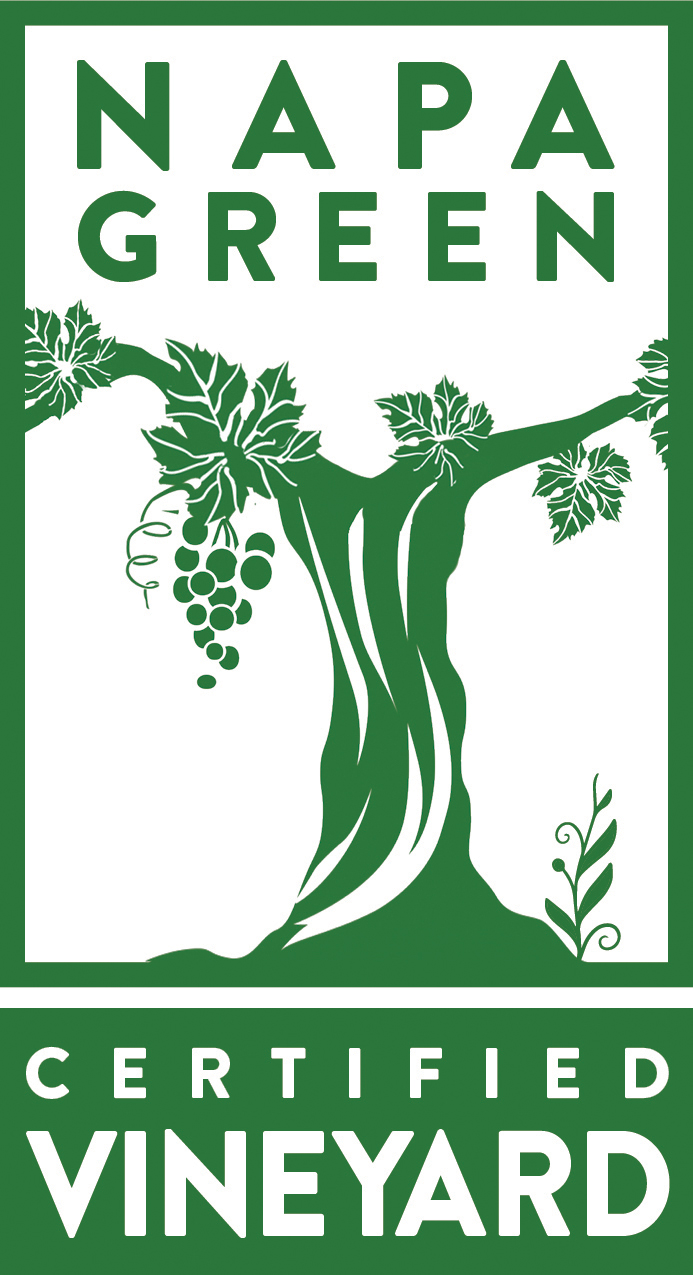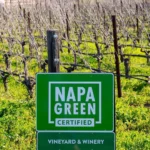New Napa Green Vineyard Certification Sets Leading Industry Standard for Climate Action, Regenerative Farming, and Social Equity
(Napa Valley, CA, June 2nd, 2021) — The Napa Green nonprofit is launching a next-level Napa Green Vineyard certification, the first sustainable winegrowing certification to focus specifically on climate action, regenerative farming, and social equity and justice. Napa Green has set the ambitious goal to work with certified growers to become carbon neutral within six years, and carbon negative, or climate positive, within nine years. The need for climate action is urgent and the cutting-edge Napa Green Vineyard standards provide growers with the guidance, tools, and support to take bold action and continue to be sustainability leaders.
“Sustainability is a journey of continuous improvement. As a community we want to be forward thinking and this certification is an exciting opportunity for Napa to drive the conversation around sustainability,” said Hailey Trefethen, Executive Vice President, Trefethen Family Vineyards and Interim President, Napa Green Board of Directors.
Among the growers already enrolled and committed to Napa Green Vineyard certification are Opus One Winery, Dominus Estate, Spottswoode Winery, Larkmead Vineyards, Cakebread Cellars, Raymond Vineyards, Burgess Cellars, Sequoia Grove, Antica Napa Valley, Trefethen Family Vineyards, Chimney Rock, Rutherford Hill, and Tres Sabores.
Michael Silacci, winemaker for Opus One Winery, says, “Napa Green has been a blessing in disguise for the Napa Valley. The challenge made to us and to other participants was such that we called the bet for sustainability and raised it to stewardship. We’re on a roll, and together we are making this planet a better place, starting in the Napa Valley.”
Napa Green Vineyard has six core elements: Social Equity, Justice and Inclusion; Carbon Farm Plans & Regenerative Farming; Irrigation Assessments & Water Efficiency; Tree & Forest Preservation and Enhancement; Prohibited & Restricted Pesticides; Conservation Burning or Burning Alternatives. The Vineyard program evaluates the entire vineyard property, including Soil Organic Matter, water, energy and nutrient management and efficiency, on-property carbon footprint, and advancing stewardship of employees and the community.
Gustavo Aviña, Viticulture Director at Pine Ridge Vineyards, and member of the Social Equity Working Group said, “We had the opportunity as growers to give our input to the program and to share our ideas, opinions and experience from working the vineyards. This certification will benefit our workers by ensuring workers’ rights, increasing benefits, and giving more opportunities for training. For me, the more prepared and educated our workers are, the better we can do as a company.”
“The growers in this world-renowned winegrowing region have a powerful collective platform. Our commitment to sustainability and climate action sets a standard that is recognized by the global wine industry, beverage sector, and marketplace,” says Anna Brittain, Executive Director of Napa Green. “I grew up here, and I am incredibly proud to be working with our members to continue to push the envelope on sustainability.”
This new Vineyard certification will replace the Napa Green Land program, which was established in 2004. The Land program drove the adoption of best practices to prevent erosion and sediment runoff, and improve the health of the Napa River and watershed. What were leading land stewardship practices have become general best practices that are now required for environmental regulatory compliance. The new Vineyard program embodies Napa Green’s commitment to evolve and grow regional sustainability and resilience to help solve the critical issues that face us now and in the future. Napa Green will be working with growers through this transition, with enrollment beginning in 2021, and a year to fully adopt the new requirements.
Ultimately, the commitment to rigorous sustainable winegrowing standards translates into higher quality, not just of the grapes and wines, but also of the experience for guests, employees, and neighbors.
About Napa Green
Napa Green is a leading sustainable winegrowing program that offers the opportunity for comprehensive, Soil to Bottle third-party certification of vineyards and wineries. Sustainability rests on three pillars – Planet, People, and Prosperity, or caring for the health and resilience of nature, employees and community, and conscientious businesses. Napa Green members practice regenerative carbon farming, save energy and water, reduce waste, take climate action, and commit to being conscientious employers and good neighbors. Learn more at NapaGreen.org.
Making the commitment to third party certification takes time and effort, but it is worth it to demonstrate our commitment to the community and to protect our watershed, our land and the air we breathe.
- Susan Boswell, Chateau Boswell Winery



